SERVICE
High Throughput Sequencing
High Throughput Sequencing
Introduction
Dunwill sets a new standard in precision medicine with our pioneering Next Generation Sequencing (NGS) technology. Our portfolio, featuring industry-leading platforms like the Illumina NovaSeq 6000, NextSeq550Dx, Ion Torrent Genexus System etc. epitomizes high-throughput, high-accuracy sequencing capabilities. Our expertise extends to intricate molecular studies in cancer and other diseases, from DNA and RNA analysis to epigenetic profiling. Accredited by the NCCL and CAP, our clinical gene sequencing and analysis services meet the highest quality standards. We offer a comprehensive range of applications, from early cancer detection and genetic risk assessment to in-depth analysis for targeted and immunotherapies. Our technology is versatile, capable of analyzing a variety of tissue and fluid samples, which enables us to provide personalized diagnostics and treatment recommendations. At Dunwill, we are committed to advancing healthcare and research with our robust, precise, and versatile NGS solutions, catering to the evolving needs of medical professionals and researchers globally.
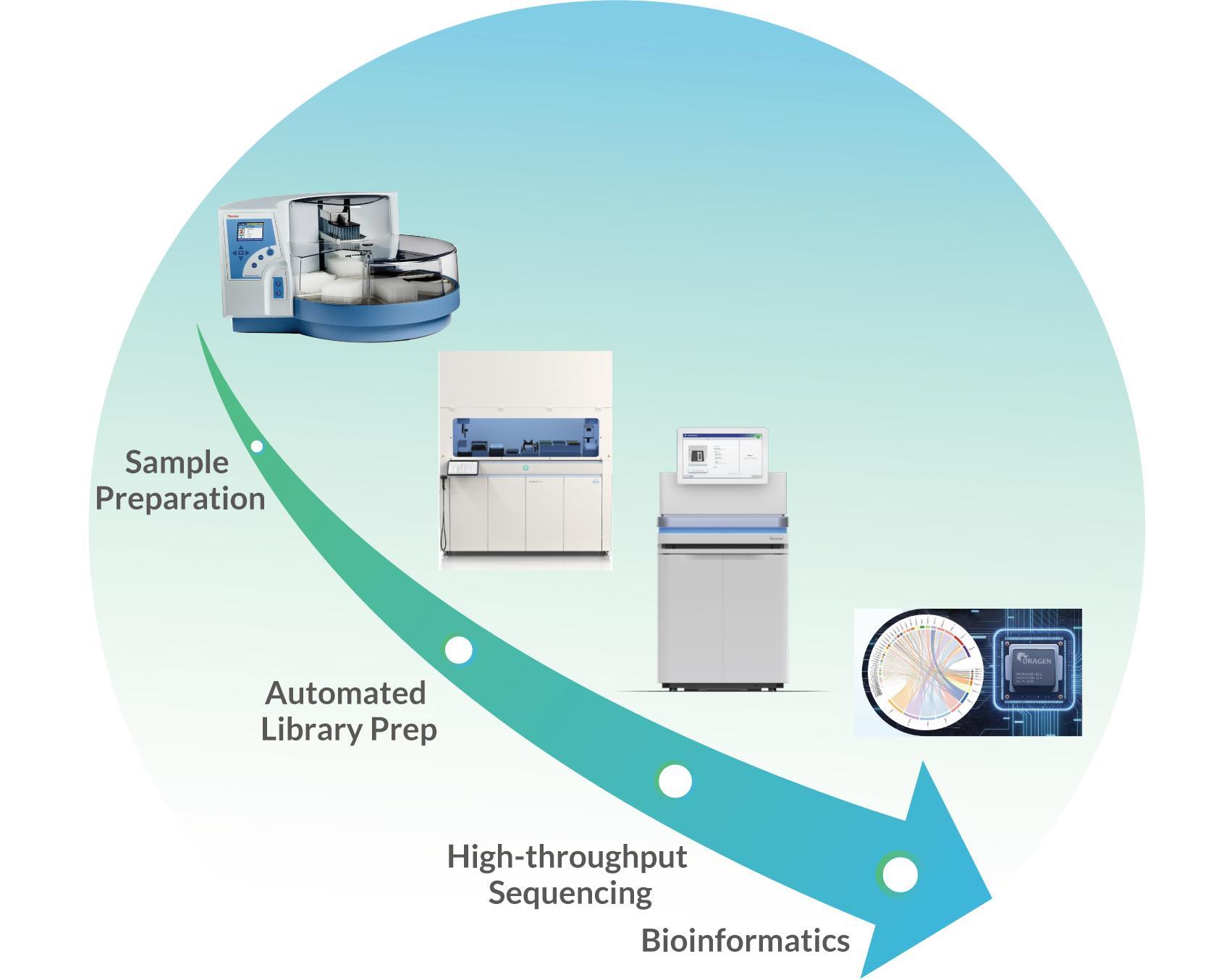
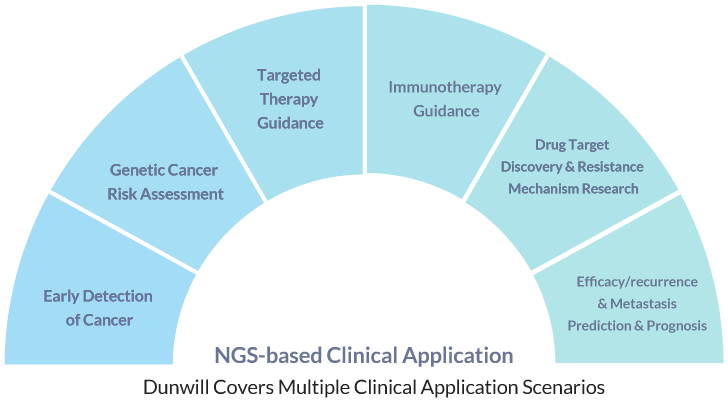
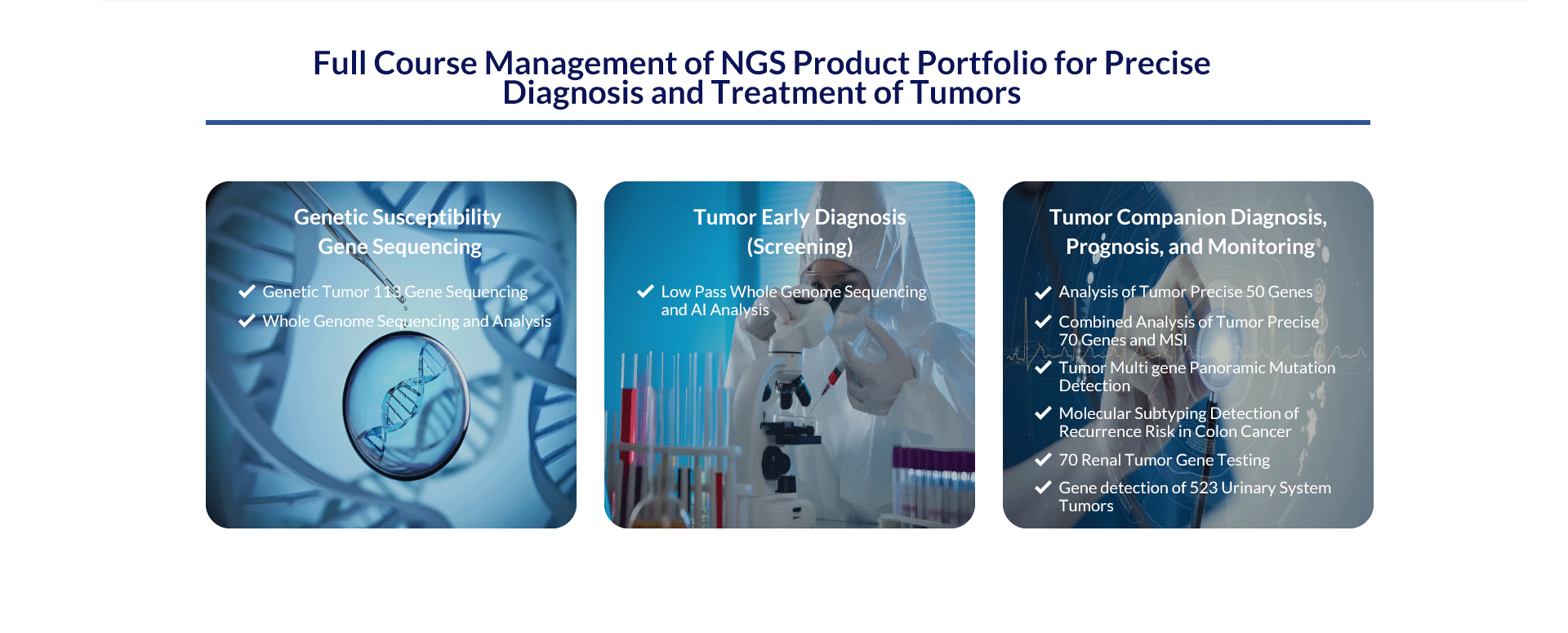
肿瘤精准70基因与MSI联合分析
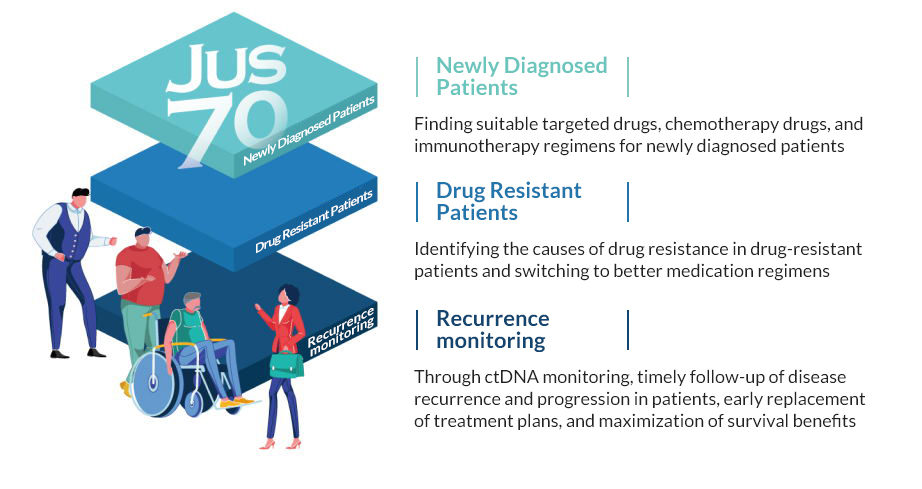
Combined Analysis of Tumor Precise 70 genes and MSI
The combined analysis of tumor precise 70 genes and MSI covers major cancer-related targeted genes and microsatellite instability, including lung cancer, colorectal cancer, gastrointestinal stromal tumors, and cholangiocarcinoma. DNA and RNA are analyzed synchronously, providing patients with more treatment options such as targeted drugs, chemotherapy drugs, and immunotherapy drugs.
anoramic Variation Analysis of Multiple Genes in Tumors
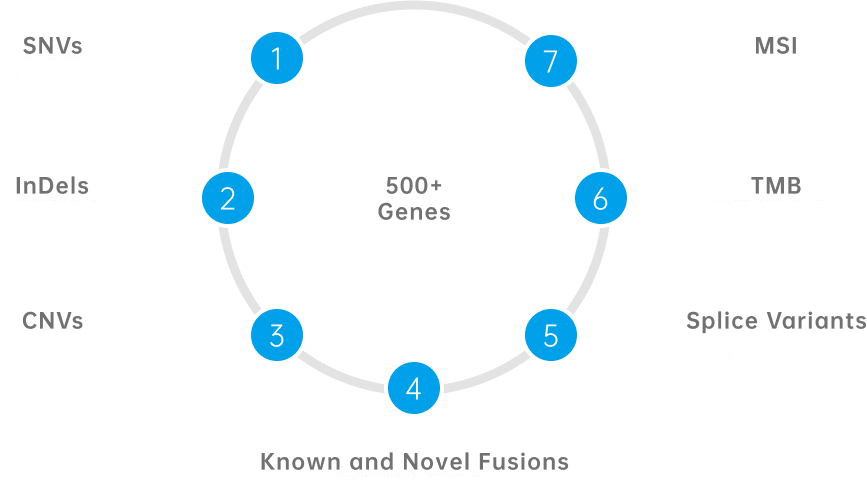
Panoramic Variation Analysis of Multiple Genes in Tumors
The tumor panoramic multi gene variation detection scheme (tissue/blood version) uses probe capture technology to detect common biomarkers in various types of cancer covered by the panel, including SNV, InDel, CNV, SV, and can also detect key immunotherapy biomarkers TMB and MSI, providing guidance for targeted drug and immunotherapy; It can also provide prognosis assessment, tumor recurrence, metastasis, and drug resistance related DNA sequencing results, effectively achieving whole cycle treatment guidance and dynamic management of cancer patients.
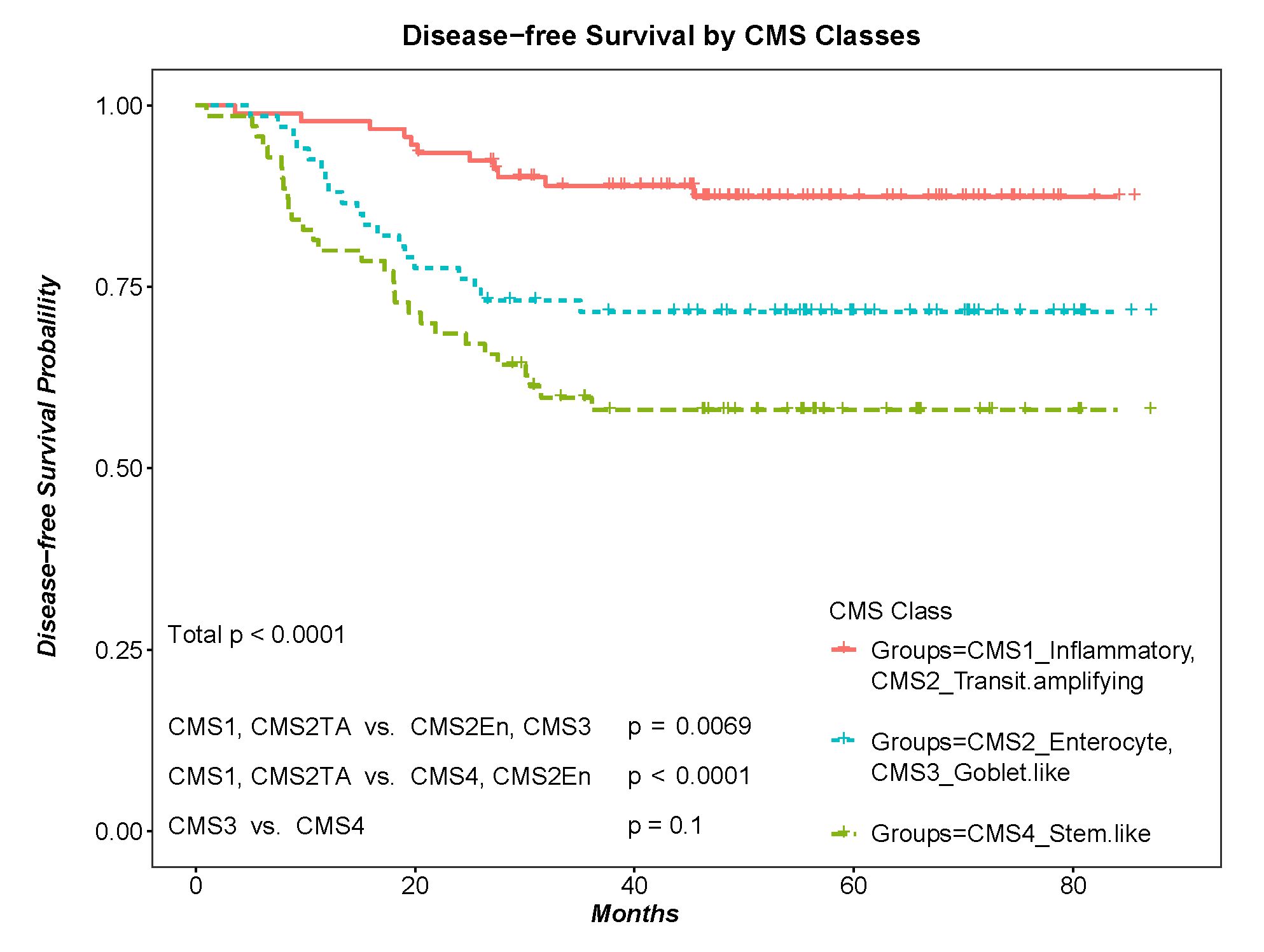
Molecular Subtyping Detection of Recurrence Risk of Colon Cancer
Molecular subtyping detection of recurrence risk of colon cancer, based on targeted capture high-throughput sequencing technology, gene expression profile analysis of 788 characteristic genes in paraffin embedded tissue (FFPE) samples of colon cancer, combined with TCGA and domestic CRC data for molecular typing, guiding postoperative treatment and providing recurrence risk assessment.
Whole Genome Sequencing Analysis

Whole Genome Sequencing Analysis
Whole Genome Sequencing (WGS) is currently the most informative sequencing technology, which can truly achieve comprehensive reading of all 3 billion base pairs and DNA sequencing analysis of over 20000 genes for each subject, obtaining comprehensive genetic information for individuals, ultimately achieving one individual analysis generating lifelong benefits and family benefits, also assisting in the management of full lifecycle health management.
Genetic Analysis of 113 Genes of Hereditary Tumors

Genetic Analysis of 113 Genes of Hereditary Tumors
Hereditary tumor account for approximately 1/10 of all tumors. Embryonic mutations greatly increase the chance of developing certain tumors, which is pathologically known as tumor genetic syndrome. Tumors caused by genetic syndrome have characteristics such as multiple (multiple tumors occurring in one person), young age, and rarity. Early diagnosis and taking certain measures can improve survival benefits. Genetic tumor 113 gene analysis focuses on characteristic tumor susceptibility gene mutations of Chinese cancer patients, helping doctors identify causes, develop strategies, and predict prognosis for cancer patients with genetic predispositions; meanwhile predicts genetic risks and develops health management plans for patients with hereditary tumors and their families.



